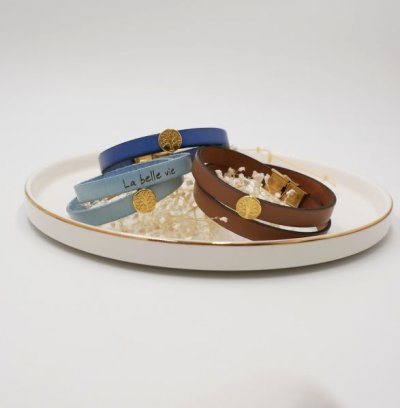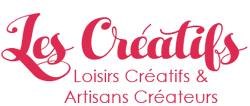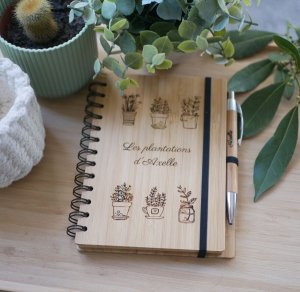Sell your handcrafted creations in boutiques
Selling your creations in a physical boutique can be a great opportunity to promote your work, reach new customers and increase sales. However, it can be difficult to know where to start. How do you find the right location? What different sales models exist? And how do depot-sales and concept stores work?
In this article, we explain the main concepts you need to know about to sell your creations in a physical boutique, including how depot-sales and concept stores work.
Why sell in a physical store?
Before delving into the details of depot-sales and concept stores, let's understand why this mode of sale is relevant for designers and craftswomen.
Selling in a physical boutique allows you to:
- Reach a new clientele: Some people prefer to see and touch products before buying.
- A physical boutique offers this possibility.
- Give visibility to your creations:
- An in-store presence can increase brand awareness.
- Create a relationship with your customers: Direct contact is an excellent way of building customer loyalty.
Garage sales: A profitable model for designers

Deposit and sale is a sales model in which you place your products with a boutique that takes care of selling them. You retain ownership of your creations until they are sold, and receive a share of the sale price.
How does it work?
Less financial risk: You don't pay for the sales space. This allows you to test demand for your creations without taking too many financial risks.
Exposure: You benefit from the store's visibility, without having to run a store yourself.
disadvantages: High commission: The boutique takes a share of sales, reducing your profit margins.
Limited control: You don't have total control over the presentation or layout of your products in the store.
- Product selection: The boutique selects the items it will accept for deposit-sale.
- This can include clothing, accessories, jewelry, or any other handcrafted creation.
- Deposit contract: A contract will be signed between you (the designer) and the store owner.
- This contract generally specifies the duration of the deposit, the commission taken by the boutique, and the conditions of sale.
- Commission: The percentage the boutique takes from the sale varies, but is often between 30 and 50%. This percentage covers the store's operating costs. Payment
- : Once your products are sold, you'll receive your share of the payment, according to the terms of the contract.
Less financial risk: You don't pay for the sales space. This allows you to test demand for your creations without taking too many financial risks.
Exposure: You benefit from the store's visibility, without having to run a store yourself.
disadvantages: High commission: The boutique takes a share of sales, reducing your profit margins.
Limited control: You don't have total control over the presentation or layout of your products in the store.
The concept store: A place for selected designers
Concept stores are stores that feature a specialized selection of products, often from designers and artisans. These stores aim to offer a unique shopping experience, with a specific atmosphere and original products.
How does it work?
Sophisticated ambience: Working with a concept store can give your creations a place of prominence in an original, designer setting, reinforcing your brand's image.
disadvantages: Strict selection: Concept stores are often highly selective. It can be difficult to get into some of these stores if your products don't exactly match their universe.
Reduced margins: As with consignment sales, you'll probably have to share part of your revenue with the store.
- Rigorous selection: Concept stores are generally very selective about the products they accept.
- Your creations must therefore match the store's universe.
- Sales method: The model may be one of deposit-sale, but some concept stores also operate on a direct sales model or rent out sales space to designers. Promotion
- : In addition to selling your creations, the concept store may organize events, workshops or collaborations to promote the designers.
Sophisticated ambience: Working with a concept store can give your creations a place of prominence in an original, designer setting, reinforcing your brand's image.
disadvantages: Strict selection: Concept stores are often highly selective. It can be difficult to get into some of these stores if your products don't exactly match their universe.
Reduced margins: As with consignment sales, you'll probably have to share part of your revenue with the store.
How do you choose between consignment and concept stores?
The choice between a warehouse and a concept store depends on a number of factors:
- Your type of product: If you offer very specific creations, a concept store might be more suitable.
- If your products are more diversified or less targeted, a depot-sale may be a better choice.
- Your sales strategy: If you prefer to minimize the financial risks and test your products, the deposit-sale may be a more flexible option.
- If you're looking to increase your visibility in a trendy, creative setting, concept stores can offer a great opportunity.
- The commission: If you want to retain a larger share of your sales, check the commissions charged by each model before committing yourself.
Tips for success in a physical store
Look after the presentation of your products: Even in a depot-sale or concept store, the appearance of your creations in the store counts. Take care with packaging, presentation and labels.
Stay flexible and open to negotiation: Each store may have different requirements, so be prepared to adapt your products and discuss terms and conditions.
Maintain good relations with store managers: Working with a physical boutique is often based on a relationship of trust. Whatever the type of operation, the most important thing is that your target group - the public who will be interested in your products - is in tune with the store. For this, nothing beats a "physical" visit to the premises.


